‘Absolute necessity’: Trump sparks concerns after floating desire to control Panama Canal, Greenland
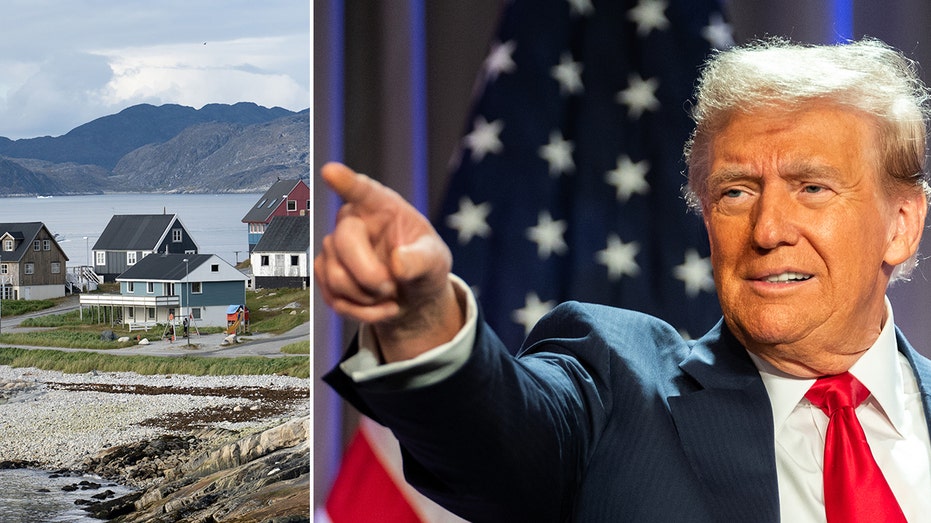
President-elect Donald Trump suggested on Wednesday that the U.S. could take control of Canada, Greenland and the Panama Canal—an unexpected Christmas Day message that has sparked concerns among world leaders in recent days as they scramble to prepare for Trump’s second White House term. In a Wednesday post on the platform Truth Social, Trump wished a “Merry Christmas to all,” including to the “wonderful soldiers of China, who are lovingly, but illegally, operating the Panama Canal,” before moving on to take aim at Canada and Greenland as well, which he suggested again could be better off under U.S. governance. Trump reiterated his claim that U.S. shippers are being forced to pay “ridiculous” and “exorbitant” prices to navigate the Panama Canal—an artificial, 51-mile waterway that connects the Atlantic and Pacific Oceans. He has suggested, without evidence, that Chinese interests are gaining outsize influence over the waterway, something Panamanian leaders have steadfastly denied. TRUMP FLOATS IDEA OF US RECLAIMING PANAMA CANAL: ‘FOOLISHLY GAVE IT AWAY’ In his Truth Social post Wednesday, Trump also mockingly referred to Canadian Prime Minister Justin Trudeau as “governor” reiterating his recent suggestion that Canada should be turned into a U.S. state. “If Canada was to become our 51st state, their taxes would be cut by more than 60%, their businesses would immediately double in size, and they would be militarily protected like no other country anywhere in the world,” Trump said. Finally, the president-elect turned his attention to Greenland; an autonomous, geographically important Arctic location rife with natural resources, including rare earth minerals. The U.S., Trump said on Wednesday, “feels that the ownership and control of Greenland is an absolute necessity” for reasons of national security and “global freedom.’ Bigger picture Trump’s lengthy Truth Social post did little to assuage the concerns of some world leaders, who have carefully watched Trump’s actions and his statements in recent weeks for clues as to how he might govern in a second term. The remarks also appear to be at odds with the “America First” policies long espoused by Trump, which seek to prioritize domestic policy rather than expansion or U.S. presence abroad. Rep. Ryan Zinke, R-Mont., echoed Trump’s concerns in an interview Thursday, describing China’s influence in the Panama Canal, and the higher prices incurred by shippers, as a “shot across the bow.” “Remember, we have China and Cuba,” Zinke said on “Mornings with Maria.“ “We have Maduro in Venezuela. We have had Russian ships there. And the Panama Canal is critical to our national security. And at present, it is being run by the Chinese Communist Party. So it’s a concern—absolutely.” ‘AMERICA FIRST’ VS. ‘AMERICA LAST’: WHAT DOES TRUMP’S RETURN MEAN FOR US FOREIGN POLICY? To be sure, it is not the first time Trump has indicated interest in Greenland, a mineral-rich, geographically important territory. In 2019, then-President Trump told reporters he was “interested” in purchasing Greenland, which he described at the time as “essentially” a “large real estate deal.” The 2019 effort never gained traction, however; and this week, Greenland Prime Minister Mute Egede immediately poured cold water on the idea that their territory could be sold to the U.S. “Greenland is ours,” Greenland Prime Minister Mute Egede said this week, in response to Trump’s suggestion. “We are not for sale and will never be for sale,” he said. “We must not lose our long struggle for freedom.” Meanwhile, Panamanian President José Raúl Mulino also disputed the notion that U.S. vessels have been singled out or paid higher fees to traverse the Panama Canal—as well as the notion that the U.S., which phased out its ownership beginning in the 1970s, has any right to reassert control over the shipping waypoint. In a video posted to social media earlier this week, Mulino reassured his country’s people that the “sovereignty and independence of our country is non-negotiable.” The Panama Canal is one of the largest and most strategically important commodity shipping waterways in the world. It handles roughly 5% of all global maritime trade and roughly 40% of U.S. container ship traffic. Recent higher prices are primarily the result of drought and more competition, which sent water levels plummeting last year to their lowest point on record. Though water levels have since rebounded, operators of the canal were forced to temporarily limit vessel traffic and increase costs for ships using the waypoint. Other factors have also played a role in higher maritime shipping prices. A series of attacks on vessels in the Red Sea late last year prompted many major commodities shippers, including BP and Equinor, to pause or reroute their shipments away from the Suez Canal. Some opted to reroute supplies via the Cape of Good Hope, adding weeks of additional time to their trips. The Department of Government Efficiency, or DOGE, incorrectly claimed on social media last week that the Panama Canal cost U.S. taxpayers $15.7 billion. In fact, the higher costs are shouldered by the ships that pass through the waterway, in the form of tolls. The U.S. government does not subsidize the canal. ‘AMERICA FIRST’ VS. ‘AMERICA LAST’: WHAT DOES TRUMP’S RETURN MEAN FOR US FOREIGN POLICY? Panamanian authorities have stressed that the prices are not the result of “unfair” treatment, or capitulation to China or any other nation-state influence. “The canal has no direct or indirect control from China, nor the European Union, nor the United States or any other power,” Mulino said in his remarks. “As a Panamanian, I reject any manifestation that misrepresents this reality.” Still, Trump does not appear to be backing down on expansion claims. “The Panama Canal is considered a VITAL National Asset for the United States, due to its critical role to America’s Economy and National Security,” Trump wrote in a Truth Social post Sunday. “A secure Panama Canal is crucial for U.S. Commerce, and rapid deployment of the Navy, from the Atlantic to the Pacific, and drastically cuts shipping times to U.S. ports.” “We’re not going to stand for it,” he said. “So, to the officials
What could happen to gas prices if Biden issues new sanctions against Russian energy sector?
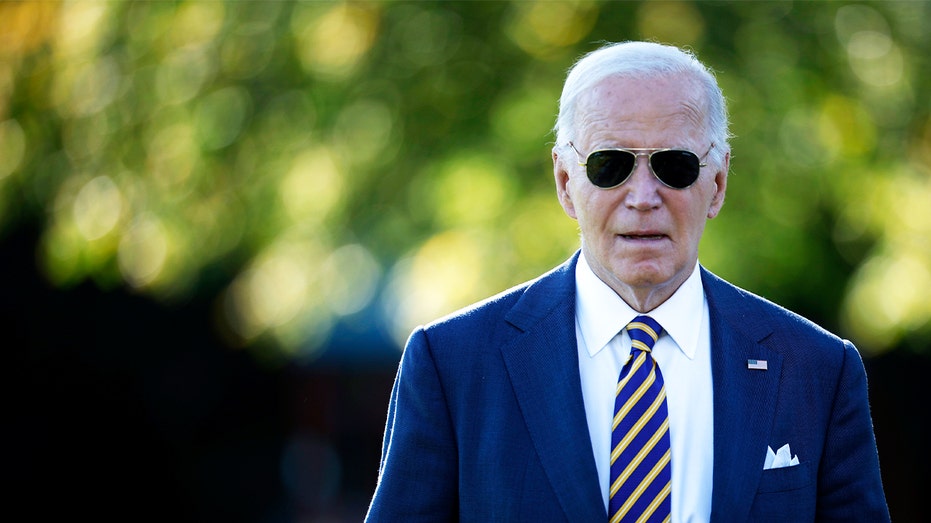
New sanctions on Russia’s energy sector could temporarily raise gas prices and shift oil export patterns, according to experts who analyzed the global impact of penalties previously placed against the country’s fossil fuels. President Joe Biden is reportedly considering imposing new sanctions on Russian energy before he leaves office, the Washington Post reported, citing four people familiar with the matter. Sources suggested that such a move could give President-elect Donald Trump more leverage in potential negotiations with Russian President Vladimir Putin. If Biden proceeds with the sanction, analysis of U.S. sanctions against Russia at the beginning of the conflict with Ukraine indicate energy sanctions can result in higher gas prices globally. The price of natural gas began to rise amid tensions in Russia in 2022 but reached a record high in the U.S. after the country invaded and sparked a yearslong war with its neighboring country, Ukraine. PUTIN SAYS RUSSIA READY TO COMPROMISE WITH TRUMP ON UKRAINE WAR “Western sanctions on the Russian energy sector have reduced Russian revenues, but have also created costs for the sanctioning nations,” the Federal Reserve Bank of St. Louis wrote in a review of the impact of energy sanctions on Russia. Biden and Western countries imposed sanctions on Russian energy after the country invaded Ukraine, resulting in rising diesel prices worldwide because there “simply weren’t enough refineries to meet diesel demand, especially after the U.S. and other countries stopped purchasing energy exports from Russia,” according to an analysis from the Federal Reserve Economic Data (FRED). US SLAPS SANCTIONS ON COMPANIES TIED TO NORD STREAM 2 IN BID TO SQUEEZE RUSSIA According to FRED, the Producer Price Index (PPI) for diesel in June 2022 was approximately 109% higher than in June 2021. However, data from the Bureau of Labor Statistics indicates that prices have decreased considerably since. The American Enterprise Institute (AEI), a public policy think tank, says that sanctions can have varying effects, such as a “significant shift in oil export patterns, rerouting trade flows in an economically inefficient manner and forcing sanctioned countries such as Iran, Russia, and Venezuela to sell crude at below-market prices.” While the move could increase oil costs, one advocate of the idea suggested that the election being over could be a reason for Biden to move forward with the penalty. “The Biden administration has been worried about increasing gas prices and worsening inflation. That was the main constraint on their Russia sanctions policy, the domestic ramifications,” said Edward Fishman, senior research scholar at Columbia University’s Center on Global Energy Policy, the Washington Post reported. “But the election is over, and inflation is under control. The reasons to be this cautious on sanctions don’t apply anymore.” The report comes just days after the U.S. issued fresh sanctions against several Russian-linked entities and individuals involved in the building of Nord Stream 2, the massive undersea gas pipeline linking Russia to Germany. Fox News’ Breanne Deppisch contributed to this report.
ICE deports former high-ranking Somalian military official accused of torture and terror

ICE officials in Washington, D.C., deported a former high-ranking Somalian military officer who they say carried out torture, terror and other human rights abuses on civilians. The officer, 71-year-old Yusuf Abdi Ali – also known as “Tukeh” – was removed from the U.S. by ICE officials on Dec. 20. He was a lieutenant colonel in the Somali National Army and commander of the Fifth Brigade in northwest Somalia during the dictatorship of Siad Barre from 1987 to 1989. As a high-ranking officer in the Somali National Army, Ali allegedly oversaw terror activities against the Isaaq clan in northwestern Somalia. He is believed to have carried out an array of human rights abuses, including extrajudicial killings, torture and arbitrary detention. ICE DEPORTATIONS CATCH UP TO TRUMP-ERA NUMBERS IN FY 2024 AS BIDEN ADMIN COMES TO A CLOSE According to a Dec. 23 statement by ICE, the Somali National Army committed numerous human rights violations against civilians in those years, including the execution of suspected political opponents, the burning of entire towns, the unlawful use of landmines and the destruction of water reservoirs to target civilian populations. In February 2024, a Department of Justice immigration judge issued a 65-page decision determining that Ali personally engaged in torture while in leadership in the Somali National Army. According to the decision, Ali ordered soldiers under his command to detain, torture and assist in extrajudicial killings. The judge ordered him removed to Somalia. The U.S.-based law firm the Center for Justice & Accountability, which has represented one of Ali’s alleged victims, Farhan Warfaa, calls him “one of the most ruthless commanders” of the Barre Somalian dictatorship. Warfaa was abducted as a teenager by soldiers under Ali’s command, held for months, repeatedly beaten and eventually shot and left for dead. ICE NABS ILLEGAL MIGRANT ACCUSED OF HEINOUS CRIME AND RELEASED BY MASSACHUSETTS SHERIFF’S OFFICE Warfaa ended up surviving, and in 2019 a federal civil court in Alexandria, Virginia, found Ali liable for his torture. Ali was living as a permanent resident in Springfield, Virginia, until Homeland Security Investigations arrested him in November 2022. “The United States will not be a safe haven for those who commit human rights violations, and we will persist in our efforts to pursue justice for the victims of these crimes,” said Russell Hott, acting executive associate director for Washington, D.C., ICE Enforcement and Removal Operations. Hott said that “though justice was delayed in this case, it ultimately prevailed.”
Border czar Tom Homan says children of illegal immigrants could be put in halfway homes

Tom Homan, President-elect Trump’s “border czar,” floated the idea of putting the children of illegal immigrants in halfway homes as part of the incoming administration’s mass deportation plan. “As far as U.S. children — children, that’s going to be a difficult situation, because we’re not going to detain your U.S. citizen children, which means, you know, they’re going to be put in a halfway house,” Homan told NewsNation on Thursday, The Hill reported .CALIFORNIA GOV. NEWSOM’S TEAM CONSIDERING WAYS TO HELP ILLEGAL IMMIGRANTS AHEAD OF SECOND TRUMP ADMIN: REPORT “They can — or they can stay at home and wait for the officers to get the travel arrangements and come back to get the family,” he added. As part of his plan to address the border crisis, Trump has said he plans to deport large numbers of illegal immigrants. One of the administration’s priorities will be to find the hundreds of thousands of migrant children unaccounted for in the United States. MIGRANT CRIME WAVE DURING BIDEN-HARRIS ADMIN UNDER SCRUTINY AMID SERIES OF ASSAULTS, MURDERS: A TIMELINE “We’re going to ask the American people to take notice: see something, say something and contact us,” Holman told Kellyanne Conway on “Hannity.” “If one phone call out of a thousand saves a child from sex trafficking or forced labor, then that’s one life saved.” Homan acknowledged it would be a “daunting task,” but “we’re going to give it everything we’ve got.” During his interview with NewsNation, Homan said giving birth to children born in the U.S. won’t spare illegal immigrants from being deported. “Having a U.S. citizen child does not make you immune to our laws, and that’s not the message we want to send to the whole world, that you can have a child and you’re immune to the laws of this country,” Homan said. In addition to mass deportations, Trump has threatened to go after birthright citizenship, which automatically grants American citizenship to those born in the country.
Manmohan Singh’s demise: Centre announces 7-day mourning
Singh’s last rites will be conducted with full state honours.
New bill would mandate gyms to carry equipment for Americans with disabilities

Congressional Democrats are pushing for federal policies mandating that gyms and fitness centers in the U.S. be accessible for Americans with disabilities. Rep. Mark DeSaulnier, D-Calif., introduced a bill “to promote the provision of exercise machines and equipment, and exercise and fitness classes and instruction, that are accessible to individuals with disabilities” earlier this week, the Congressional Record shows. It appears to be a companion bill to the “Exercise and Fitness For All Act” introduced in the upper chamber by Sen. Tammy Duckworth, D-Ill., earlier this year. JOHNSON BLASTS DEM ACCUSATIONS HE VOWED TO END OBAMACARE AS ‘DISHONEST’ The legislation would direct the U.S. Access Board, a federal agency regulating accessibility for people with disabilities, to create new rules for fitness facilities across the country. It would mandate “that exercise or fitness instruction offered by the exercise or fitness service provider are accessible to individuals with disabilities,” and that at least one employee trained in working with people with disabilities be on the clock during all operating hours. If implemented, it would be a significant step forward for accessibility advocates in the U.S., and a significant change for potentially hundreds of U.S. businesses. DANIEL PENNY TO BE TAPPED FOR CONGRESSIONAL GOLD MEDAL BY HOUSE GOP LAWMAKER Duckworth told Forbes in July of this year that part of her inspiration for the bill came from her own struggles to find adequate gym equipment. Duckworth, a retired lieutenant colonel, lost both of her legs when a rocket-propelled grenade hit the helicopter she was co-piloting in Iraq in 2004. She and DeSaulnier were both part of a prior push in the 117th Congress to introduce the bill, alongside late Rep. Don Young, R-Alaska. “[F]ar too many Americans are still excluded from basic access to exercise equipment and fitness classes due to outdated equipment and services, inaccessible to individuals with disabilities,” DeSaulnier said in a statement at the time. “It is unacceptable that these barriers still exist that make it more difficult for individuals with disabilities to get the exercise they need to live healthy lives.” His re-introduction of the bill on Tuesday appears to be largely symbolic, considering there are no more legislative days in the 118th Congress’ calendar. Fox News Digital reached out to DeSaulnier’s office for further comment.
Record number of migrants died in attempt to reach Spain this year
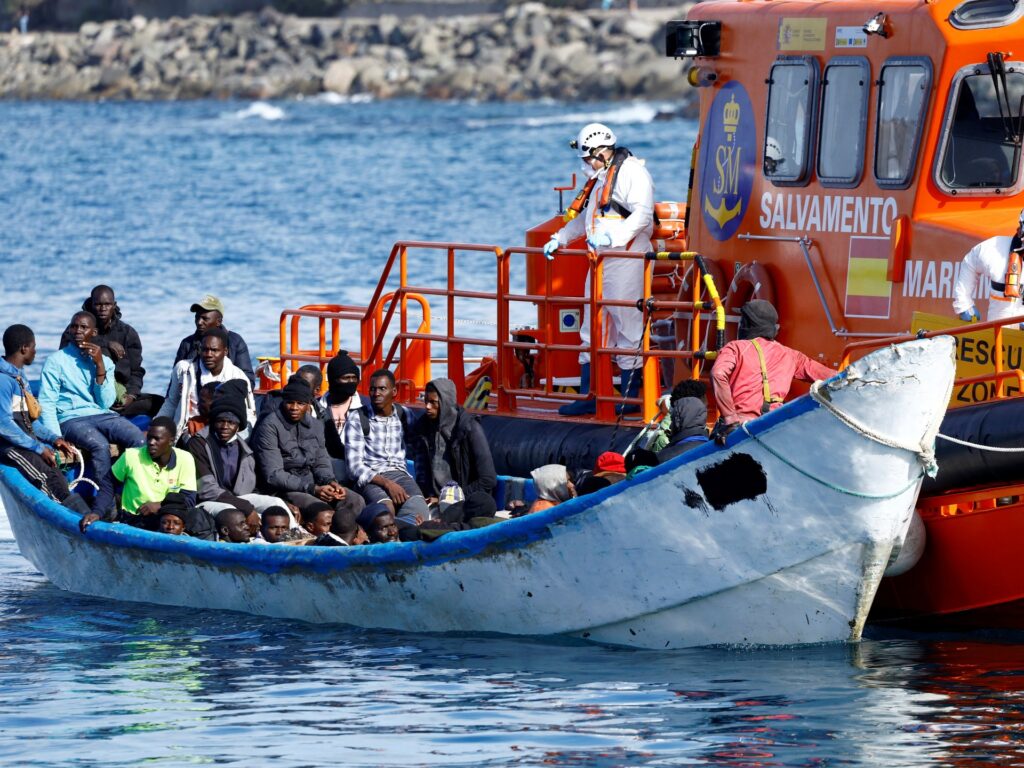
More than 10,000 migrants perished – an average of 30 a day – in 2024 while trying to reach Spain, NGO says in new report. More than 10,000 migrants died while trying to reach Spain by sea this year, a report released by a Spanish migration rights group has revealed, the most since it began keeping a tally in 2007. On average, that means 30 migrants died every day this year attempting to reach the country by boat, the NGO Caminando Fronteras (Walking Borders) said on Thursday. Overall deaths rose by 58 percent compared with last year, the report added. Tens of thousands of migrants left West Africa in 2024 for the Canary Islands, a Spanish archipelago close to the African coast that has increasingly been used as a stepping stone to continental Europe. Caminando Fronteras said most of the 10,457 deaths recorded up until December 15 took place along that crossing, the so-called Atlantic route – considered one of the world’s most dangerous. The organisation compiles its figures from families of migrants and official statistics of those rescued. It included 1,538 children and 421 women among the dead. April and May were the deadliest months, the report said. Advertisement It blamed the use of flimsy boats and increasingly dangerous routes as well as the insufficient capacity of maritime rescue services for the surge in deaths. “These figures are evidence of a profound failure of rescue and protection systems. More than 10,400 people dead or missing in a single year is an unacceptable tragedy,” the group’s founder, Helena Maleno, said in a statement. The victims were from 28 nations, mostly in Africa, but also from Iraq and Pakistan. Many migrants, including women, also experience “violence, discrimination, racism, deportations and sexual violence, being forced to survive in extreme conditions” before departing, the report said. Caminando Fronteras also noted a “sharp increase” in 2024 in boats leaving from Mauritania, which it said became the main departure point en route to the Canary Islands. Seven migrant boats landed in the archipelago on Wednesday, Christmas Day, Spain’s maritime rescue service said on social media site X. In February, Spain pledged 210 million euros ($218m) in aid to Mauritania to help it crack down on human smugglers and prevent boats from taking off. At their closest point, the Canaries lie 100km (62 miles) off the coast of North Africa. The shortest route is between the coastal town of Tarfaya in southern Morocco and the island of Fuerteventura in the Canaries. But the Atlantic route to the Canary Islands is particularly dangerous because of strong currents. Along with Italy and Greece, Spain is one of the three main European gateways for migrant arrivals. Advertisement Spain’s Ministry of Interior says more than 57,700 migrants reached Spain by boat until December 15 this year, a roughly 12 percent increase from the same period last year. The majority of them came through the Atlantic route. Adblock test (Why?)
Sudan’s war came to represent the worst of humanity
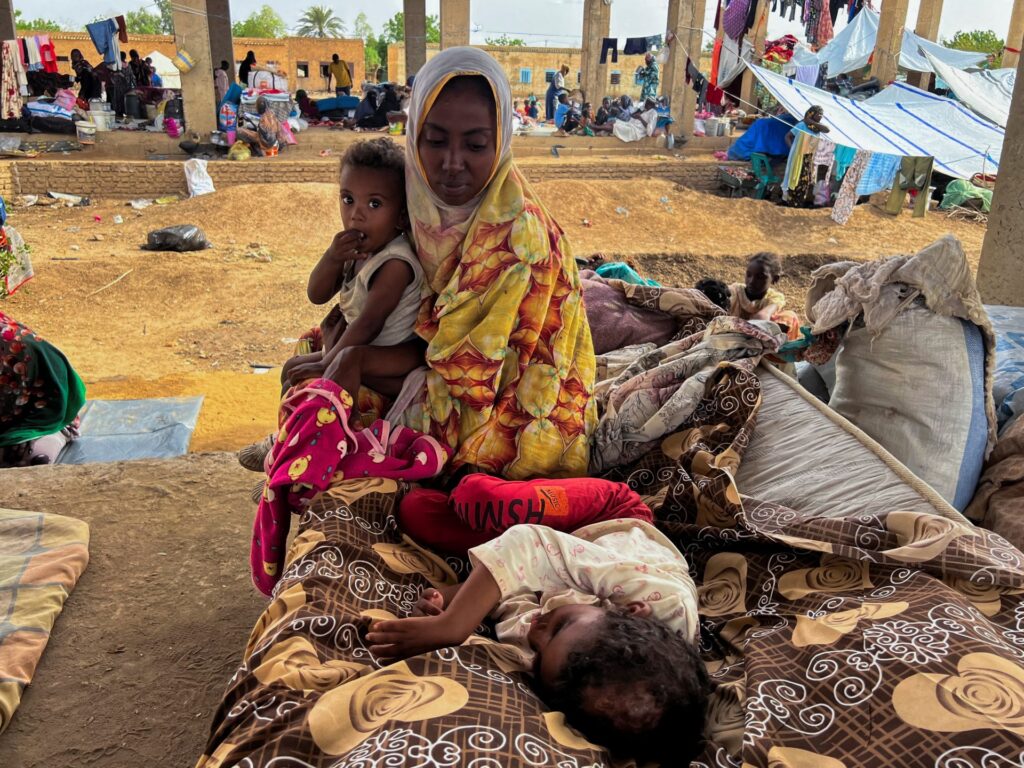
In Sudan, 20 months of armed conflict between the paramilitary Rapid Support Forces (RSF) and the Sudanese army (SAF) have killed at least 20,000 people and left some 25 million – half of the country’s population – suffering from severe hunger and in urgent need of humanitarian aid. Meanwhile, 14 million Sudanese have been displaced, with about 3.1 million seeking refuge outside the country, mainly in Chad, South Sudan, Uganda, and Egypt. As is often the case, children are bearing the brunt of this brutal war. According to medical organisation Doctors Without Borders, known by its French initials MSF, approximately one in six of those treated at the Bashair Teaching Hospital in South Khartoum for war-related injuries, such as gunshot, shrapnel and blast wounds, between January and September 2024 were aged 15 or below. The medical team revealed that they recently treated an 18-month-old baby, Riyad, who was hit by a stray bullet while napping in his family’s home. They said they managed to stabilise him but were unable to remove the bullet from his chest. Amid ongoing conflict and limited access to medical care, the future of Riyad, like thousands of other war-wounded, traumatised and orphaned children across the country, remains uncertain. Advertisement Sexual violence is also rife in Sudan’s conflict. Forces commanded by both the RSF and the SAF have committed rape and other acts of sexual and gender-based violence, revealed the UN Independent International Fact-Finding Mission for the Sudan in its report published in October. The report accused both sides of using rape as a weapon of war but said the RSF was behind the “large majority” of documented cases and was responsible for “sexual violence on a large scale”, including “gang rapes and abducting and detaining victims in conditions that amount to sexual slavery”. Amid ongoing conflict, survivors of rape and other sexual violence struggle to access medical treatment, essential medication, and psychological support services. Many are left wounded, traumatised, and homeless. With war crimes and other atrocities committed against men, women and even children on a daily basis with impunity, Sudan’s conflict has come to represent the worst of humanity. As the people of Sudan prepare to begin another year hungry, wounded and scared, the international community, and especially the African organisations allegedly committed to ensuring peace and stability in the region, have a responsibility to take meaningful action – including direct intervention. So far, efforts to put an end to the suffering of the Sudanese by mediating between the warring parties have all been fruitless. Peace initiatives led by the African Union (AU), the Intergovernmental Authority on Development (IGAD), the United States, Egypt and Switzerland have all failed to secure a sustainable ceasefire, a comprehensive peace agreement or meaningful protections for the civilian population. Advertisement In May 2023, just one month into the conflict, the two warring sides appeared to have reached a pivotal agreement in Saudi Arabia. They signed the Jeddah Declaration of Commitment to Protect the Civilians of Sudan, agreeing to “distinguish at all times between civilians and combatants and between civilian objects and military targets”. As part of the agreement they also pledged to “refrain from any attack that may be expected to cause incidental civilian harm” and to “protect all public and private facilities, such as hospitals and water and electricity installations”. The agreement was supposed to result in at least a weeklong ceasefire, but in the end could not stop atrocities against civilians, let alone the relentless fighting between SAF and RSF, even for 48 hours. Since this US- and Saudi Arabia-led initiative failed some 19 months ago, no peace initiative has come anywhere near putting an end to the carnage in Sudan. In August, talks convened by the US in Switzerland to end the war achieved some progress on aid access, but once again failed to secure a ceasefire. Efforts to bring the warring sides to the negotiating table and appeals to their humanity to demand an end to the attacks on civilians are clearly not working. More needs to be done. In its harrowing report, based on testimonies from the ground, the UN fact-finding mission made clear what the country needs: An international peacekeeping force to be deployed to protect civilians. “Given the failure of the warring parties to spare civilians, it is imperative that an independent and impartial force with a mandate to safeguard civilians be deployed without delay,” the UN mission’s lead, Chande Othman, said in September. Advertisement Regrettably, the Sudanese government rejected the call, just as it rejected IGAD’s similar call for the deployment of a regional peacekeeping force back in July 2023. The military government in Khartoum – which has been in office since seizing power from a civilian-led transitional authority in an October 2021 coup – frames any potential external intervention, including peacekeeping missions solely focused on the protection of the civilian population, as a violation of the country’s sovereignty. If the Sudanese government was able to provide protection to civilians, its rejection of outside intervention would be understandable. But it is obvious – after 20 months of devastating war fought with no regard for international humanitarian law – that no party in this war is capable of, or sufficiently concerned about, providing safety, security and dignity to Sudan’s beleaguered civilian population. Without the deployment of a regional peacekeeping mission backed by the international community – a mission committed to and clearly tasked with putting an immediate end to the relentless attacks on civilians – the suffering of the Sudanese civilians will not come to an end in the foreseeable future. Today, the global community, and especially the AU, faces a simple choice: Remain passive while the death toll in Sudan continues to rise, or take meaningful and decisive measures – even if it upsets the Sudanese government – to address the crisis. The regional body would lose any legitimacy if it chooses to watch idly as innocent lives are lost to senseless violence in a war without end. Advertisement As
India’s former PM Manmohan Singh dies aged 92
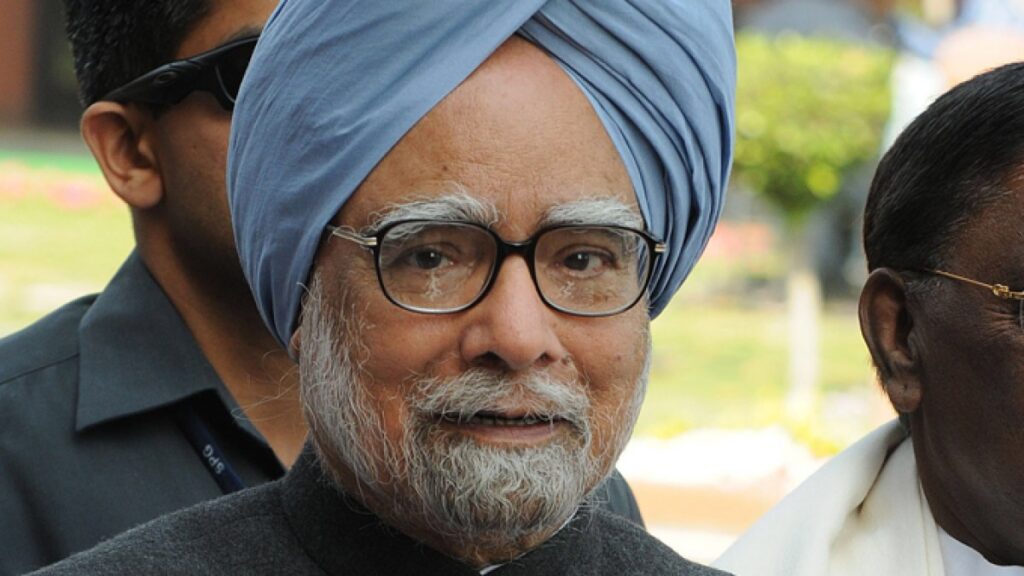
Former Indian Prime Minister Manmohan Singh, who governed the South Asian country for two terms and liberalised its economy in an earlier stint as finance minister, has died. He was 92. Singh, an economist-turned-politician who also served as the governor of the Central Bank of India, was ailing and admitted to the All India Institute of Medical Sciences in New Delhi late on Thursday. His health deteriorated due to “sudden loss of consciousness at home”, the hospital said in a statement. He was “being treated for age-related medical conditions”, the statement added. With profound grief, we inform the demise of the former Prime Minister of India, Dr Manmohan Singh, aged 92. He was being treated for age-related medical conditions and had a sudden loss of consciousness at home on 26 December 2024. Resuscitative measures were started immediately… pic.twitter.com/ZX9NakKo7Y — ANI (@ANI) December 26, 2024 A mild-mannered technocrat, Singh became one of India’s longest serving prime ministers, holding the office from 2004 to 2014 and earning a reputation as a man of great personal integrity. Advertisement Singh adopted a low profile after relinquishing the post of prime minister. He is survived by his wife and three daughters. Prime Minister Narendra Modi, who succeeded Singh in 2014, called him one of India’s “most distinguished leaders” who rose from humble origins and left “a strong imprint on our economic policy over the years”. “As our Prime Minister, he made extensive efforts to improve people’s lives,” Modi said in a post on X. He called Singh’s interventions in parliament as a lawmaker “insightful” and said “his wisdom and humility were always visible”. India mourns the loss of one of its most distinguished leaders, Dr. Manmohan Singh Ji. Rising from humble origins, he rose to become a respected economist. He served in various government positions as well, including as Finance Minister, leaving a strong imprint on our economic… pic.twitter.com/clW00Yv6oP — Narendra Modi (@narendramodi) December 26, 2024 Born in 1932 into a poor family in a part of British-ruled India now in Pakistan, Singh studied by candlelight to win a place at Cambridge University before heading to Oxford, earning a doctorate with a thesis on the role of exports and free trade in India’s economy. He became a respected economist, then India’s Central Bank governor and a government adviser but had no apparent plans for a political career when he was suddenly tapped to become finance minister in 1991. During that tenure to 1996, Singh was the architect of reforms that saved India’s economy from a severe balance of payments crisis and promoted deregulation and other measures that opened an insular country to the world. Manmohan Singh Ji led India with immense wisdom and integrity. His humility and deep understanding of economics inspired the nation. My heartfelt condolences to Mrs. Kaur and the family. I have lost a mentor and guide. Millions of us who admired him will remember him with the… pic.twitter.com/bYT5o1ZN2R — Rahul Gandhi (@RahulGandhi) December 26, 2024 Advertisement Singh’s ascension to prime minister in 2004 was even more unexpected. He was asked to take on the job by Sonia Gandhi after she led the centre-left Indian National Congress party to a surprise victory. Italian by birth, she feared her ancestry would be used by Hindu-nationalist opponents to attack the government if she were to lead the country. Riding an unprecedented period of economic growth, Singh’s government shared the spoils of the country’s new-found wealth, introducing welfare schemes such as a jobs programme for the rural poor. In 2008, his government also clinched a landmark deal that permitted peaceful trade in nuclear energy with the United States for the first time in three decades, paving the way for strong relations between New Delhi and Washington. However, his efforts to further open up the Indian economy were frequently frustrated by political wrangling within his own party and demands made by coalition partners. In 2012, his government was tipped into a minority after the Congress party’s biggest ally quit their coalition in protest at the entry of foreign supermarkets. Two years later, Congress was decisively swept aside by Modi’s Bharatiya Janata Party. At a news conference months before he left office, Singh insisted he had done the best he could for the country. “I honestly believe that history will be kinder to me than the contemporary media or, for that matter, the opposition parties in parliament,” he said. Adblock test (Why?)
Manmohan Singh passes away at 92: India’s former PM is survived by…
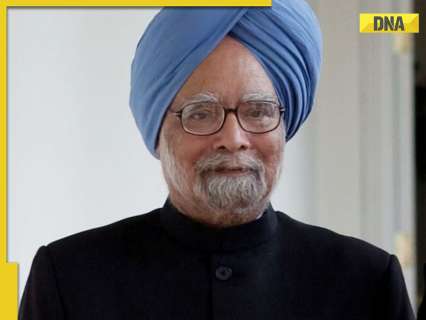
Manmohan Singh retired from Rajya Sabha earlier this year after serving for 33 years in the house.
